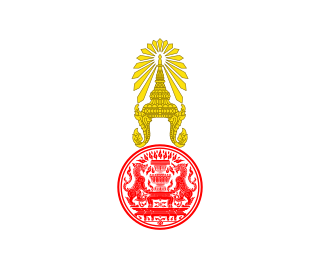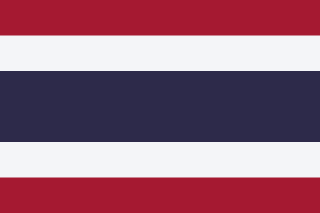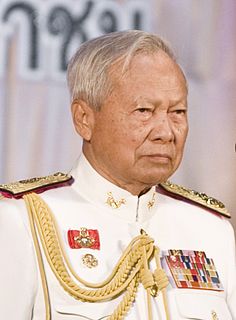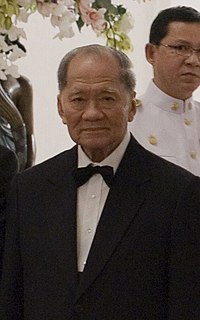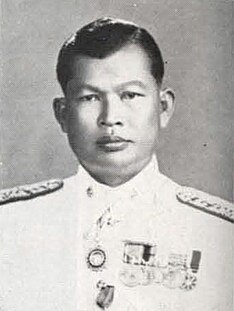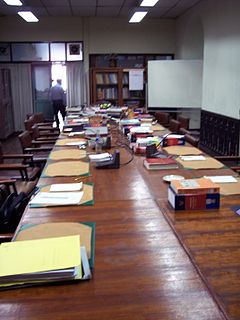#
| Prime Minister
| Date of birth
| Date of
inauguration | Age at
inauguration
| End date of
Prime Minister | Age of End Date | Length of
retirement
| Date of death
| Lifespan
|
|---|
| 1 | Phraya Manopakorn Nititada | (1884-07-15)15 July 1884 | 28 June 1932 (1932-06-28) | 47 years, 349 days | 20 June 1933 (1933-06-20) | 48 years, 12 days | 15 years, 103 days | (1948-10-01)1 October 1948 | 64 years, 78 days |
| 2 | Phraya Phahon Phonphayuhasena | (1887-03-29)29 March 1887 | 21 June 1933 (1933-06-21) | 46 years, 84 days | 13 December 1938 (1938-12-13) | 51 years, 15 days | 8 years, 213 days | (1947-07-14)14 July 1947 | 60 years, 107 days |
| 3 | Plaek Phibunsongkhram | (1897-07-14)14 July 1897 | 16 December 1938 (1938-12-16) | 41 years, 155 days | 16 September 1957 (1957-09-16) | 60 years, 2 days | 6 years, 269 days | (1964-06-11)11 June 1964 | 66 years, 333 days |
| 4 | Khuang Aphaiwong | (1902-05-17)17 May 1902 | 1 August 1944 (1944-08-01) | 42 years, 76 days | 8 April 1948 (1948-04-08) | 45 years, 22 days | 19 years, 342 days | (1968-03-15)15 March 1968 | 65 years, 303 days |
| 5 | Tawee Boonyaket | (1904-11-10)10 November 1904 | 31 August 1945 (1945-08-31) | 40 years, 294 days | 17 September 1945 (1945-09-17) | 40 years, 7 days | 26 years, 47 days | (1971-11-03)3 November 1971 | 67 years, 85 days |
| 6 | Seni Pramoj | (1905-05-26)26 May 1905 | 17 September 1945 (1945-09-17) | 40 years, 114 days | 6 October 1976 (1976-10-06) | 71 years, 11 days | 20 years, 295 days | (1997-07-28)28 July 1997 | 92 years, 63 days |
| 7 | Pridi Banomyong | (1900-05-11)11 May 1900 | 24 March 1946 (1946-03-24) | 45 years, 317 days | 23 August 1946 (1946-08-23) | 46 years, 12 days | 36 years, 252 days | (1983-05-02)2 May 1983 | 82 years, 356 days |
| 8 | Thawan Thamrongnawasawat | (1901-11-21)21 November 1901 | 23 August 1946 (1946-08-23) | 44 years, 275 days | 8 November 1947 (1947-11-08) | 45 years, 17 days | 41 years, 25 days | (1988-12-03)3 December 1988 | 87 years, 12 days |
| 9 | Pote Sarasin | (1905-03-25)25 March 1905 | 21 September 1957 (1957-09-21) | 52 years, 180 days | 26 December 1957 (1957-12-26) | 52 years, 9 month, 1 days | 42 years, 277 days | (2000-09-28)28 September 2000 | 95 years, 187 days |
| 10 | Thanom Kittikachorn | (1911-08-11)11 August 1911 | 1 January 1958 (1958-01-01) | 46 years, 143 days | 14 October 1973 (1973-10-14) | 62 years, 2 month, 1 days | 30 years, 246 days | (2004-06-16)16 June 2004 | 92 years, 310 days |
| 11 | Sarit Thanarat | (1908-06-16)16 June 1908 | 9 February 1959 (1959-02-09) | 50 years, 238 days | 8 December 1963 (1963-12-08) [1] | 55 years, 5 month, 22 days | N/A | (1963-12-08)8 December 1963 | 55 years, 175 days |
| 12 | Sanya Dharmasakti | (1907-04-05)5 April 1907 | 14 October 1973 (1973-10-14) | 66 years, 192 days | 26 February 1975 (1975-02-26) | 67 years, 10 month, 21 days | 26 years, 314 days | (2002-01-06)6 January 2002 | 94 years, 276 days |
| 13 | Kukrit Pramoj | (1911-04-20)20 April 1911 | 14 March 1975 (1975-03-14) | 63 years, 328 days | 12 January 1976 (1976-01-12) | 64 years, 8 month, 22 days | 19 years, 270 days | (1995-10-09)9 October 1995 | 84 years, 172 days |
| 14 | Thanin Kraivichien | (1927-04-05)5 April 1927 | 8 October 1976 (1976-10-08) | 49 years, 186 days | 19 October 1977 (1977-10-19) | 50 years, 6 month, 14 days | 44 years, 23 days | | 94 years, 220 days |
| 15 | Kriangsak Chamanan | (1917-12-17)17 December 1917 | 11 November 1977 (1977-11-11) | 59 years, 329 days | 3 March 1980 (1980-03-03) | 62 years, 2 month, 17 days | 23 years, 295 days | (2003-12-23)23 December 2003 | 86 years, 6 days |
| 16 | Prem Tinsulanonda | (1920-08-26)26 August 1920 | 3 March 1980 (1980-03-03) | 59 years, 190 days | 4 August 1988 (1988-08-04) | 67 years, 11 month, 9 days | 33 years, 99 days | (2019-05-26)26 May 2019 | 98 years, 273 days |
| 17 | Chatichai Choonhavan | (1920-04-05)5 April 1920 | 4 August 1988 (1988-08-04) | 68 years, 121 days | 23 February 1991 (1991-02-23) | 70 years, 10 month, 18 days | 7 years, 72 days | (1998-05-06)6 May 1998 | 78 years, 31 days |
| 18 | Anand Panyarachun | (1932-08-09)9 August 1932 | 2 March 1991 (1991-03-02) | 58 years, 205 days | 22 September 1992 (1992-09-22) | 60 years, 1 month, 13 days | 29 years, 50 days | | 89 years, 94 days |
| 19 | Suchinda Kraprayoon | (1933-08-06)6 August 1933 | 7 April 1992 (1992-04-07) | 58 years, 245 days | 24 May 1992 (1992-05-24) | 58 years, 9 month, 18 days | 29 years, 171 days | | 88 years, 97 days |
| 20 | Chuan Leekpai | (1938-07-28)28 July 1938 | 23 September 1992 (1992-09-23) | 54 years, 57 days | 9 February 2001 (2001-02-09) | 62 years, 6 month, 12 days | 20 years, 275 days | | 83 years, 106 days |
| 21 | Banharn Silpa-archa | (1932-08-19)19 August 1932 | 13 July 1995 (1995-07-13) | 62 years, 328 days | 24 November 1996 (1996-11-24) | 64 years, 3 month, 5 days | 19 years, 151 days | (2016-04-23)23 April 2016 | 83 years, 248 days |
| 22 | Chavalit Yongchaiyudh | (1932-05-15)15 May 1932 | 25 November 1996 (1996-11-25) | 64 years, 194 days | 8 November 1997 (1997-11-08) | 65 years, 5 month, 24 days | 24 years, 3 days | | 89 years, 180 days |
| 23 | Thaksin Shinawatra | (1949-07-26)26 July 1949 | 9 February 2001 (2001-02-09) | 51 years, 198 days | 19 September 2006 (2006-09-19) | 57 years, 1 month, 24 days | 15 years, 53 days | | 72 years, 108 days |
| 24 | Surayud Chulanont | (1943-08-28)28 August 1943 | 1 October 2006 (2006-10-01) | 63 years, 34 days | 29 January 2008 (2008-01-29) | 65 years, 5 month, 24 days | 13 years, 286 days | | 78 years, 75 days |
| 25 | Samak Sundaravej | (1935-06-13)13 June 1935 | 29 January 2008 (2008-01-29) | 72 years, 230 days | 9 September 2008 (2008-09-09) | 73 years, 2 month, 26 days | 1 year, 76 days | (2009-11-24)24 November 2009 | 74 years, 164 days |
| 26 | Somchai Wongsawat | (1947-08-31)31 August 1947 | 18 September 2008 (2008-09-18) | 61 years, 18 days | 2 December 2008 (2008-12-02) | 60 years, 5 month, 2 days | 12 years, 344 days | | 74 years, 72 days |
| 27 | Abhisit Vejjajiva | (1964-08-03)3 August 1964 | 17 December 2008 (2008-12-17) | 44 years, 136 days | 5 August 2011 (2011-08-05) | 47 years, 2 days | 10 years, 98 days | | 57 years, 100 days |
| 28 | Yingluck Shinawatra | (1967-06-21)21 June 1967 | 5 August 2011 (2011-08-05) | 44 years, 45 days | May 7, 2014 (2014-05-07) | 46 years, 10 month, 16 days | 7 years, 188 days | | 54 years, 143 days |
| 29 | Prayut Chan-o-cha | (1954-03-21)21 March 1954 | 24 August 2014 (2014-08-24) | 60 years, 156 days | | | | | 67 years, 235 days |
#
| Prime Minister
| Date of birth
| Date of
inauguration | Age at
inauguration
| End date of
Prime Minister | | Length of
retirement
| Date of death
| Lifespan
|
|---|










